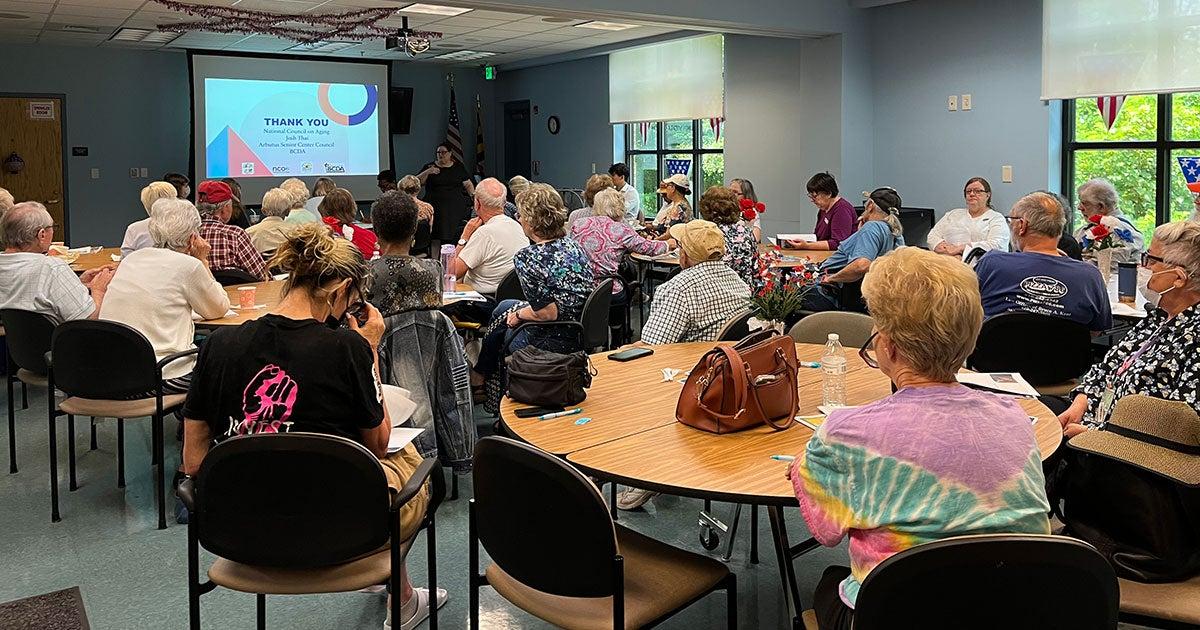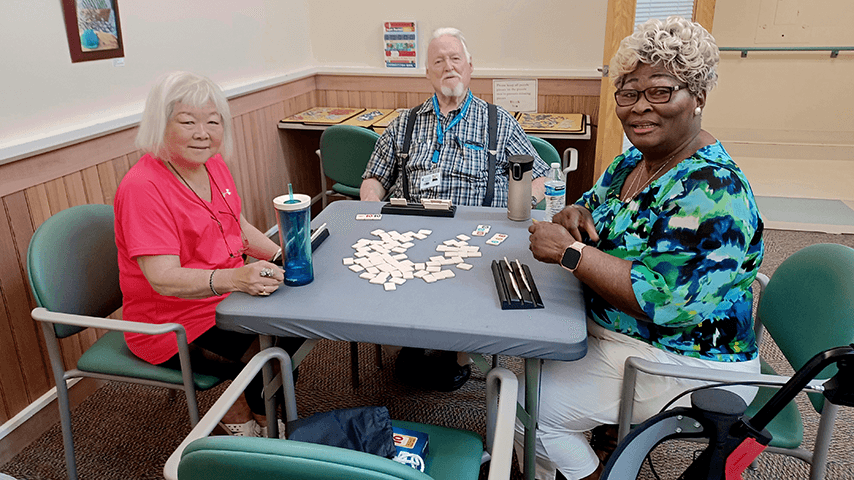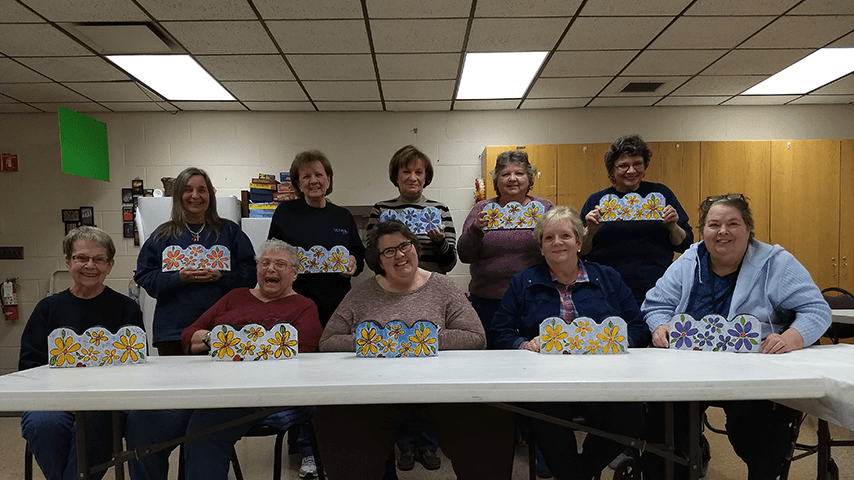Senior Center Spotlight: OPAL Center a Model of How a Virtual Senior Center Shines
4 min read
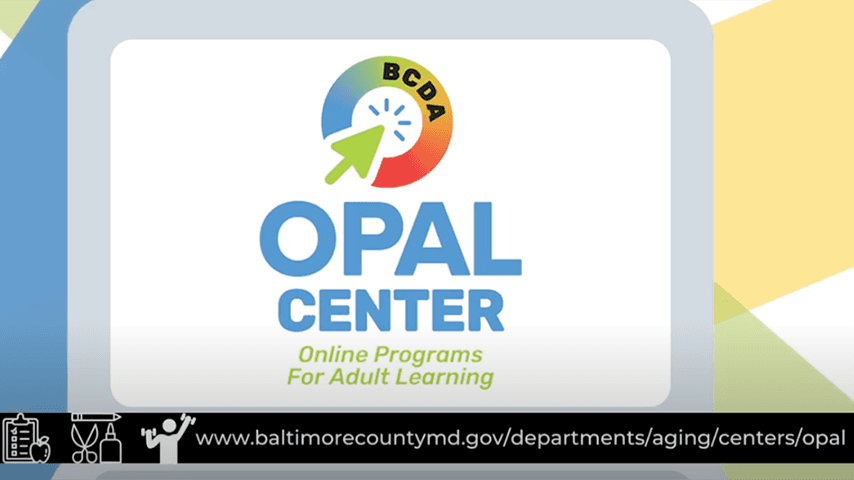
When the pandemic forced senior centers nationwide to close their doors, the Baltimore County Department of Aging responded by launching OPAL—Online Programs for Adult Learning. The aim of the fully virtual senior center: to bring connection, enrichment, and support directly into people’s homes.
Today, OPAL Center continues to thrive—serving not just county residents, but participants across the country.
What is the history of OPAL Center?
Virtual programming became a lifeline during the COVID pandemic, offering older adults a way to stay active and engaged while buildings were closed.
When doors re-opened and in-person programs started up again, the Baltimore County Department of Aging recognized that a virtual option continued to meet the needs of many who either couldn’t return or preferred not to. Some participants faced barriers like mobility limitations, transportation challenges, caregiving responsibilities, or the demands of working. Others simply found the convenience of connecting from home fit their lifestyle better.
Rather than let those people be left behind, the county made the decision to keep OPAL going and expand it.
“What sets OPAL apart is accessibility,” says the center’s director, Chasity Wiener. “We meet people who can’t—or won’t—come back to a building, but still crave learning, connection, and support. And because we’re virtual, geography isn’t a barrier. We have participants from Baltimore County, across Maryland, and even from Virginia, Chicago, and beyond.”
What takes place at OPAL Center?
OPAL strives to reflect the variety of programs offered at Baltimore County’s 20 brick-and-mortar centers, while taking advantage of the flexibility of a virtual platform. A few examples:
- Fitness & wellness: From chair aerobics to yoga, OPAL offers multiple exercise options, some free and others led by certified instructors for a small fee.
- Cultural & educational opportunities: Monthly virtual tours transport participants around the world, while classes such as Unlearning Thanksgiving: A Native American Perspective provide fresh viewpoints.
- Creative expression: Writing workshops, reflective journaling, knitting groups, and even Zentangle art bring community members together to share their talents.
- Unique offerings: Conscious aging and book club discussions explore life, legacy, and meaning in ways that blend education with personal reflection.
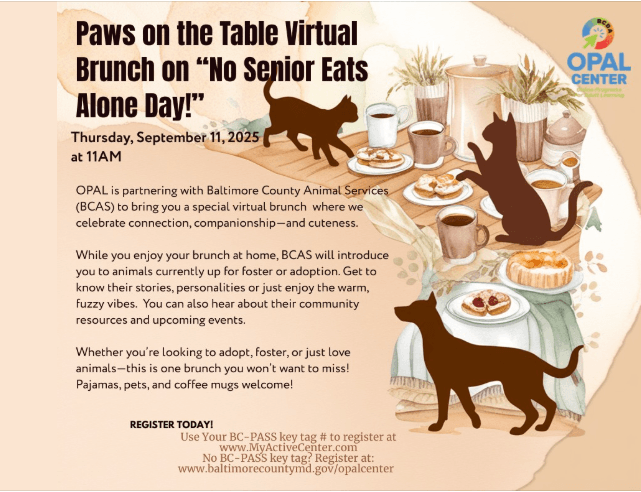
The center offers free tech support and such sessions as mindful meditation and dementia caregiver support and training. Community remains at the heart of every activity. Whether it’s a “Bring Your Own Brunch” social event, the weekly “Nifty Knitters” group, or a lively coffee hour with the director, OPAL programs are designed to spark relationships as much as learning.
How OPAL Center supports caregivers and builds community
Because OPAL welcomes participants starting at age 50, it uniquely engages caregivers—often adult children balancing work, family, and caring for aging parents. Classes on conscious aging, political extremism, and stress management give them tools and support, while participation in fitness or social groups provides needed respite.
Participants like Alice Stallings credit OPAL with transforming their lives. Formerly a faithful attendee at a local senior center, Alice became isolated when she could no longer go in person. Through OPAL, she rediscovered purpose and connection. “It saved my life having this connection to other people,” she shared in a recent BCDA feature.
What’s next for OPAL Center?
The OPAL team has ambitious goals. They are exploring partnerships with long-term care and rehabilitation facilities, where residents often feel cut off from their communities. By bringing OPAL programming inside these facilities, they hope to enrich daily life and maintain continuity for older adults transitioning through care settings.
Another priority is expanding access through technology bundles—rolling carts equipped with laptops, speakers, and projectors—to help senior centers offer hybrid programs. This initiative could also place devices directly in the hands of older adults who have Wi-Fi at home but lack affordable equipment.
Funding remains a challenge. Unlike brick-and-mortar centers with advisory councils and fundraising capacity, OPAL operates on a lean budget. Grants and creative partnerships are essential to sustain and grow the model. Still, the spirit of innovation and collaboration runs deep.
OPAL shows what’s possible when senior centers embrace innovation. By blending tradition with technology, it preserves the core mission of senior centers—reducing isolation, fostering community, and supporting wellness—while opening new doors for accessibility and engagement.
Rather than replacing Baltimore County’s 20 brick-and-mortar centers, OPAL adds another dimension. It expands programming, extends reach to those who cannot or prefer not to attend in person, and provides new opportunities for connection that complement the in-person experience.
As one participant summed up: “I may not be able to walk through the doors of my senior center anymore, but thanks to OPAL, I still feel like I belong.”
Not a member of the National Institute for Senior Centers? Join today, membership is free.
If your center has completed a recent study or assessment or is trying out some new programming approaches, we’d love to hear about it. And if you haven't already, we'd encourage you to join the National Institute of Senior Centers (NISC). Free to all senior centers (and their personnel), NISC supports senior centers with best practices and innovations in programming, as well as networking and training opportunities. Find out how you can become a NISC Affiliate today.
Photo courtesy OPAL Senior Center
